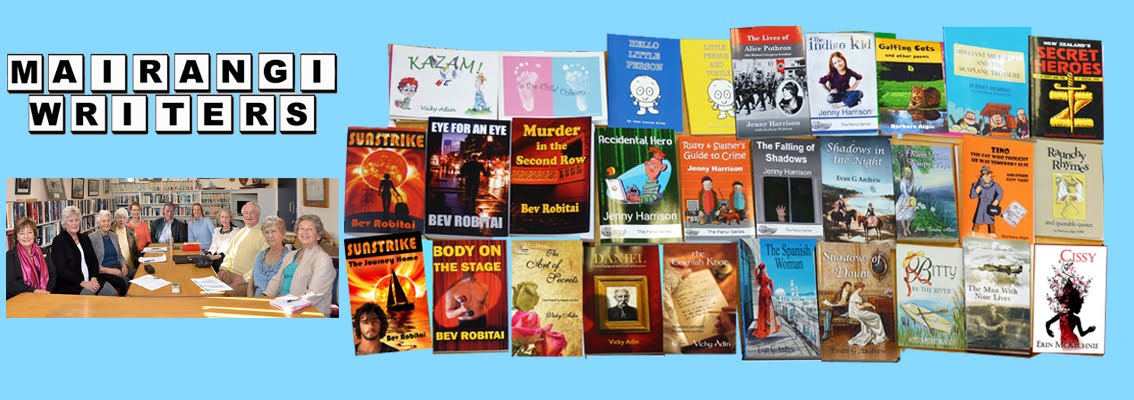Most Kiwis are now aware of the rising of the mid-winter
constellation Matariki (more properly Mata-ariki) ie Mata: ‘tiny eyes’ and
Ariki: ‘eye of God.’ This occurs in our mid-winter, at the end of June. It is
interesting to look into the Maori tradition of belief that ‘the brighter the
stars, the more productive will be the harvest for the coming season.’
As writers I think we must look ahead with hope to our own production and harvest. There are so many knock-backs these days and so much turmoil in the publishing world that it helps to stand back and think from time to time. What is the best way for me? Which media of so many should I choose? The present situation reminds me of Don Quixote who ‘jumped on his horse and rode off in all directions at once.’ Laughable I know, but that is indeed the present position.
Where do we start? Do we have enough IT knowledge? Where can we get help? We at Mairangi Writers are fortunate in having guidance and know-how available through various members. (thanks Bev.) But there is always our old friend Google who at the press of a button brings forth advice from all corners.
It seems to me, the trick is to know where to begin and then to decide which avenue to go down! Or even, should we try more than one approach in order to publicise and sell? (There’s nothing like friends and other readers for publicity.) The single frustrating choice of only a few ago, ie the thoroughly intimidating approach to a publisher, is now even less likely. The outlets for selling books can be eBooks, Amazon, Smashwords, book trailers, podcasts, social networks and so on. Apart from novelists, there are countless world-wide competitions available to short story writers and the natural follow-on to that is the personal collection or anthology, which brings us back to the production line again.
Having said all that, we have been given a wide choice with modern media and doesn’t that feel good? At last we are masters of our own prized works and with a bit of push here and a bit of shove there, we can set up our own launches, publicity and selling bases.
As writers I think we must look ahead with hope to our own production and harvest. There are so many knock-backs these days and so much turmoil in the publishing world that it helps to stand back and think from time to time. What is the best way for me? Which media of so many should I choose? The present situation reminds me of Don Quixote who ‘jumped on his horse and rode off in all directions at once.’ Laughable I know, but that is indeed the present position.
Where do we start? Do we have enough IT knowledge? Where can we get help? We at Mairangi Writers are fortunate in having guidance and know-how available through various members. (thanks Bev.) But there is always our old friend Google who at the press of a button brings forth advice from all corners.
It seems to me, the trick is to know where to begin and then to decide which avenue to go down! Or even, should we try more than one approach in order to publicise and sell? (There’s nothing like friends and other readers for publicity.) The single frustrating choice of only a few ago, ie the thoroughly intimidating approach to a publisher, is now even less likely. The outlets for selling books can be eBooks, Amazon, Smashwords, book trailers, podcasts, social networks and so on. Apart from novelists, there are countless world-wide competitions available to short story writers and the natural follow-on to that is the personal collection or anthology, which brings us back to the production line again.
Having said all that, we have been given a wide choice with modern media and doesn’t that feel good? At last we are masters of our own prized works and with a bit of push here and a bit of shove there, we can set up our own launches, publicity and selling bases.
Oh! I almost forgot to mention; have you heard of The Writer’s Diet? If
you want to check out your ms or story before you send it off, run it through
Helen Sword’s fantastic approach to getting your adverbs and verbs lined up. You can find it here http://writersdiet.com/WT.php
Bye for now and remember to turn your horse in one direction only!
Pam Laird Bye for now and remember to turn your horse in one direction only!
